Produced in Partnership with RETSCH GmbHReviewed by Emily MageeApr 4 2023
Raw materials for the pharmaceutical or food industries frequently demand a size reduction process to decrease the particle size, such as for herbs, tea, and spices. The materials may be ready for consumption (e.g., tea), or they are utilized for a subsequent processing step, such as the extraction of valuable ingredients.
A recent example is the extraction of CBD oil from ground cannabis plants. For both direct use or as a process step prior to extraction, the specific requirements of the food and medical industries must be considered when choosing a suitable size reduction tool.
Factors such as easy cleaning, smooth surfaces, and available materials, including stainless steel 316 L to guarantee contamination-free processing, must be taken into account. RETSCH has recently released the new Cutting Mill SM 300 foodGrade for these specific applications and the small-scale production of herbs and spices.
Small Scale Production of Ground Cannabis in the SM 300 316 L foodGrade
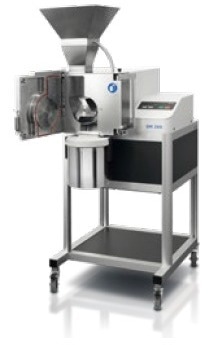
Figure 1. Cutting Mill SM 300 foodGrade.
Image Credit: RETSCH GmbH
Cutting mills are widely recognized for grinding elastic, fibrous, soft, medium-hard, and tough samples, in addition to heterogeneous material mixes. The Cutting Mill SM 300 has superior performance, particularly in tough jobs where other cutting mills are not successful.
This is due to the powerful 3 kW drive with high torque and RES technology. This mill facilitates perfect adaption to application demands with variable speeds from 100 to 3,000 rpm. A variety of bottom sieves with aperture sizes ranging from 0.25 – 20 mm are available, guaranteeing a defined final fineness.
A reduction in the speed leads to a decreased fine fraction of the sample and to more particles within the desired size range. This is particularly true for cutting plant materials; the lowest speed of the SM 300 should be reduced to 100 rpm.
Reduced speed is also advantageous for grinding heat-sensitive materials: the decreased energy input helps to prevent the sample from getting too warm during the process. For small-scale production purposes, such as in the food or cosmetic industry, RETSCH offers a 316 L foodGrade version of the SM 300.
All parts that come into contact with the sample are comprised either of 316 L steel or FDA-certified stainless steel, including the bottom sieve, the parallel section rotor, or the long stock hopper.
It is advised to utilize the optional 316 L rotor for cutting harder and more compact samples, such as twigs, branches, or stems that exceed 15 mm in diameter. This is due to the 316 L rotor having blades made of FDA-certified stainless steel.
An optional sample outlet and cyclone unit with 30 l receptacle are also available in
316 L steel.
Grinding cannabis flowers with the SM 300 316L - RETSCH
Video Credit: RETSCH
This SM 300 model is ideal for small-scale grinding of dried plant materials such as cannabis (sugar leaves, flower buds, whole plants), leaves, or herbs. The degree of product fineness can also be influenced by the speed and by selecting a suitable bottom sieve.
Specific particle size ranges that are a requirement for various extraction methods (ethanol, supercritical CO2) can be attained. Typically, cannabis CBD oil extraction processes involve particle sizes of approximately 2 mm (extraction with supercritical CO2) or 5-15 mm (extraction with ethanol).
Up to 25-30 kg/hour of dried flower buds of medical cannabis that are approximately 50 mm in size can undergo pulverization at 3000 rpm to achieve a fineness mostly below 2 mm when using a 4 mm bottom sieve (material supplied by the University Hohenheim, Germany).
A V-rotor is also highly beneficial here, but this is not yet available in 316 L.
This rotor can also be used if smaller particle sizes need to be obtained using a bottom sieve with aperture sizes of 1-2 mm.
The decrease in speed to 2000 rpm enables sample warming and resulting blockages of the sieve apertures to be avoided.
The exchange of the 30 l receptacle on the cyclone is simple, and sample recovery is assisted by the smooth surfaces of the 316 L material. If larger sample particles in the range of 5-15 mm are required, such as for ethanol extraction, a bottom sieve with larger apertures, such as 10 mm, should be selected, along with a lower speed, e.g., 700 rpm.
This provides both larger particles and fewer warming effects. The sample throughput was identical to that described above when using a 4 mm bottom sieve at a speed of 3000 rpm.
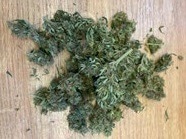
Figure 2. Cannabis flower buds before the grinding process.
Image Credit: RETSCH GmbH
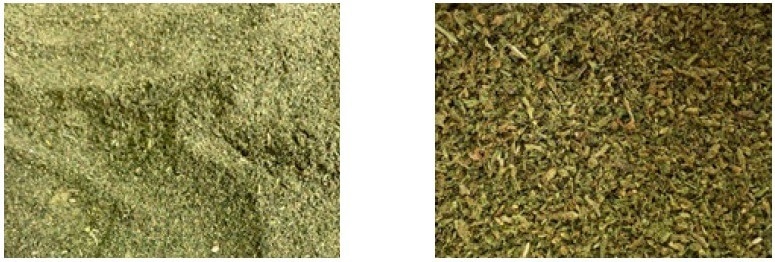
Figure 3. Cannabis after grinding in the SM 300 foodGrade, left: using a 4 mm bottom sieve and grinding at 3000 rpm, right, using a 10 mm bottom sieve and grinding at 700 rpm. Image Credit: RETSCH GmbH
Sample loss is negligible. Some dust remains in the grinding chamber and on the sieves or the surfaces of the cyclone and receptacle. But in the described applications, it was less than 0.04%.
The fold-back hopper of the SM 300 is perfectly suited for easy cleaning, just like the bottom sieves without cassettes or edges, where sample material can get trapped. Cleaning of the cyclone and the 30-l receptacle is also quickly done.
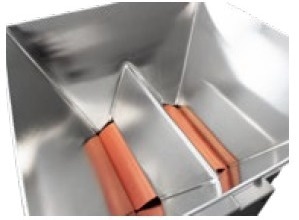
Figure4. Fold-back hopper of the SM 300 foodGrade.
Image Credit: RETSCH GmbH
Small Scale Production of Herbs and Spices
The SM 300 316L foodGrade version may also be utilized for the grinding of herbs or spices in small-scale production processes. Samples like dried melissa, olive leaves, peppermint, ramson, chamomile, and chervil are easy to process.
To avoid particles smaller than 1 mm, the speed should be reduced to 700 rpm, or bottom sieves with 4 mm aperture size should be used instead of smaller ones. A throughput of 10-20 kg/hour, depending on the sample and the used speed and bottom sieves, can thus be achieved.
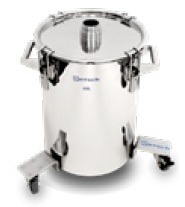
Figure 5. 30 l receptacle made of 316L stainless steel.
Image Credit: RETSCH GmbH
Conclusion
The SM 300 316 L foodGrade version is the ideal mill for the small-scale production of food (herbs and spices) or for the preparation of cannabis for further extraction in the medical or healthcare industry.
Its wide variety of accessories and speed range of 100-3000 rpm make the SM 300 316 L easy to adapt to individual application needs. Operating the piece of equipment is both convenient and safe, and with the fold-back hopper, the push-fit accessories, and the smooth surfaces, cleaning is completed in no time.
University of Hohenheim - CANNABIS NET
Cannabis and its extracts have been used for medical purposes for millennia, but numerous laws have hindered further research and development.
As studies continue to reveal favorable findings for the use of different phytocannabinoids, various technological developments for large-scale production of cannabis are needed for timely product development and research purposes.
For more than four years, the University of Hohenheim, AG Cropping systems and modeling, led by Prof. Simone Graeff-Hönninger, has conducted various research projects involving cannabis.
This research focuses on the characterization of quality parameters (such as terpenes, cannabinoids, and flavonoids) of distinct cannabis strains, in addition to the development of the corresponding indoor and outdoor cropping systems under Germany’s environmental conditions.
Additionally, the group leads the BMWI-funded international German-Canadian Network CANNABIS-NET. This network connects scientists and industry partners in Germany and Canada with complementary expertise to initiate collaborative research projects in the field of cannabis to address existing technological and service-based gaps.
The partners aim to realize targeted improvements in the breeding, cultivation, harvesting, and extraction of cannabis, in addition to post-harvest processing technologies and the development of end-use applications.
RETSCH GmbH joined this network and linked up with the leading German partners in the area of cannabis.
Find out more about RETSCH's solutions for preparation of cannabis and related products.
About RETSCH GmbH
With more than 100 years of experience in sample preparation, RETSCH is the world’s leading manufacturer of instruments for homogenizing laboratory samples for analysis as well as for analyzing the particle size of solid substances by test sieving.
The RETSCH product portfolio includes a great variety of mills and jaw crushers, capable of reducing materials down to any required fineness, sieve shakers and test sieves as well as assisting technologies to optimize the handling of samples.
RETSCH instruments stand for representative sample preparation in compliance with relevant standards and contamination-free comminution processes – they are essential tools for preparing samples for laboratory analysis and stand for reliability, precision and durability.
Since 1990 RETSCH is part of the continuously growing technology group VERDER and forms the core of the group’s Laboratory Division VERDER SCIENTIFIC. Other companies belonging to this division are Retsch Technology GmbH, ATM GmbH, Eltra GmbH and Carbolite Gero Ltd.